Great Leaders of the 20th Century and the Books That Capture Their Legacy
Explore the traits and lessons from great leaders who have shaped history through their vision and actions.

Table of Contents
- Introduction
- Mahatma Gandhi
- Winston Churchill
- Franklin D. Roosevelt
- Nelson Mandela
- Martin Luther King Jr.
- Margaret Thatcher
- John F. Kennedy
- Mother Teresa
- Mikhail Gorbachev
- Eleanor Roosevelt
- Conclusion
- Further Reading
Introduction
The 20th century was a period of immense change, marked by two world wars, the rise and fall of empires, and significant social and technological advancements. Central to these transformations were leaders who stood at the forefront, guiding nations through tumultuous times and leaving indelible marks on history. Understanding their lives, leadership styles, and the challenges they faced offers valuable lessons for today's world.
This comprehensive guide explores ten great leaders of the 20th century, delving into their biographies, leadership qualities, and the books that best capture their legacies. From freedom fighters to political visionaries, these individuals have shaped the course of history, and their stories continue to inspire and educate future generations.
Mahatma Gandhi
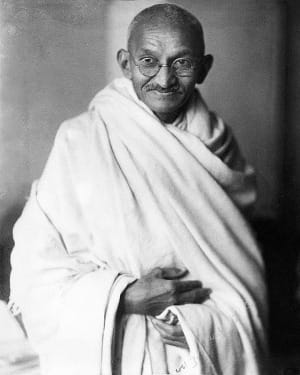
Book Highlight: "Gandhi: An Autobiography - The Story of My Experiments with Truth" by Mohandas K. Gandhi
Life and Leadership
Born on October 2, 1869, in Porbandar, India, Mohandas Karamchand Gandhi, known as Mahatma Gandhi, became the foremost leader of the Indian independence movement against British rule. Educated in law in London, Gandhi's experiences with racial discrimination in South Africa transformed him into an ardent activist for civil rights.
Returning to India in 1915, Gandhi pioneered the concept of Satyagraha (truth and non-violent resistance), leading nationwide campaigns for easing poverty, expanding women's rights, building religious and ethnic amity, and, most importantly, achieving Swaraj (self-rule).
Key Leadership Qualities
- Non-violent Resistance: Gandhi's commitment to non-violence became a powerful tool against oppression.
- Moral Integrity: He lived a life of simplicity and self-discipline, embodying the principles he advocated.
- Inspirational Leadership: Gandhi's ability to mobilize masses through peaceful means was unparalleled.
Notable Achievements
- Salt March (1930): A 240-mile march protesting the British salt tax, igniting widespread civil disobedience.
- Quit India Movement (1942): A call for immediate independence, leading to mass protests and arrests.
About the Book
"Gandhi: An Autobiography - The Story of My Experiments with Truth" is Gandhi's own account of his life up to 1921. The book delves into his personal struggles, philosophies, and the development of his non-violent approach.
Why It's Significant
- Firsthand Insight: Readers gain an intimate understanding of Gandhi's thoughts and motivations.
- Philosophical Depth: The autobiography explores concepts of truth, ethics, and self-realization.
- Historical Context: Provides a detailed look at the socio-political environment of India during the independence movement.
Winston Churchill
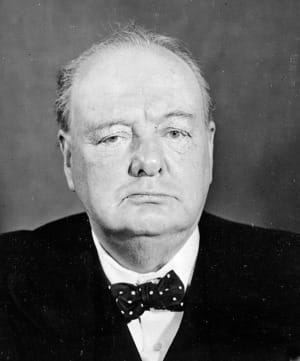
Book Highlight: "Churchill: Walking with Destiny" by Andrew Roberts
Life and Leadership
Born on November 30, 1874, in Oxfordshire, England, Sir Winston Leonard Spencer Churchill served as the British Prime Minister during World War II and again in the early 1950s. Known for his steadfast determination and stirring oratory, Churchill played a critical role in defending democracy against fascism.
His political career spanned over five decades, during which he held various governmental positions. Churchill was also a prolific writer, historian, and artist, receiving the Nobel Prize in Literature in 1953.
Key Leadership Qualities
- Resilience: Churchill's tenacity kept Britain united during its darkest hours.
- Visionary Leadership: He foresaw the dangers of Nazi Germany and advocated for preparedness.
- Communication Skills: His speeches inspired not only the British people but also the Allied forces.
Notable Achievements
- Leadership During WWII: Guided Britain through the war with unwavering resolve.
- Atlantic Charter (1941): Co-authored with Franklin D. Roosevelt, outlining post-war goals for peace.
About the Book
"Churchill: Walking with Destiny" by Andrew Roberts is a comprehensive biography that utilizes newly available documents, including diaries and letters, to paint a nuanced portrait of Churchill's life and career.
Why It's Significant
- In-depth Analysis: Offers fresh insights into Churchill's strategic decisions and personal struggles.
- Balanced Perspective: Acknowledges both his achievements and controversies.
- Engaging Narrative: Roberts' writing brings history to life, making it accessible to readers.
Franklin D. Roosevelt
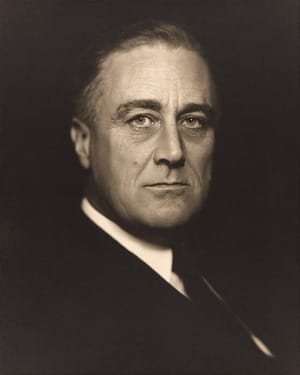
Book Highlight: "Franklin D. Roosevelt: A Political Life" by Robert Dallek
Life and Leadership
Born on January 30, 1882, in Hyde Park, New York, Franklin Delano Roosevelt was the 32nd President of the United States. Serving four terms from 1933 to 1945, he led the nation through the Great Depression and World War II.
Despite being diagnosed with polio in 1921, which left him paralyzed from the waist down, Roosevelt's determination and optimism helped restore public confidence. His New Deal programs aimed at economic recovery and reform transformed the American government and society.
Key Leadership Qualities
- Adaptability: Roosevelt adjusted policies to address evolving challenges during the Depression.
- Empathy: His "Fireside Chats" connected with citizens, fostering trust and hope.
- Strategic Diplomacy: Played a pivotal role in establishing the United Nations and shaping the post-war world.
Notable Achievements
- The New Deal: A series of programs and reforms to revive the U.S. economy.
- Leadership During WWII: As a key Allied leader, he contributed significantly to the defeat of the Axis powers.
About the Book
"Franklin D. Roosevelt: A Political Life" by Robert Dallek explores Roosevelt's political genius, his ability to navigate complex issues, and his impact on American democracy.
Why It's Significant
- Comprehensive Biography: Covers Roosevelt's entire political career with detailed analysis.
- Insight into Leadership: Highlights how his personal experiences shaped his policies.
- Historical Relevance: Provides context for understanding modern American politics.
Nelson Mandela
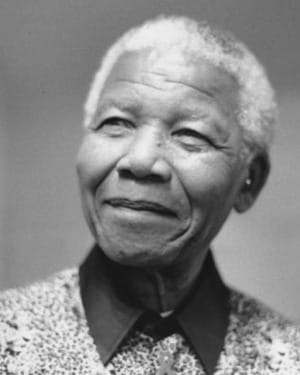
Book Highlight: "Long Walk to Freedom" by Nelson Mandela
Life and Leadership
Born on July 18, 1918, in Mvezo, South Africa, Nelson Rolihlahla Mandela became a symbol of resistance against apartheid. As a lawyer and activist, he joined the African National Congress (ANC) and led efforts to end racial segregation.
Imprisoned for 27 years, Mandela emerged as a unifying figure, advocating for reconciliation rather than retribution. In 1994, he became South Africa's first black president, overseeing the transition to a multiracial democracy.
Key Leadership Qualities
- Forgiveness: Mandela's emphasis on reconciliation helped heal a divided nation.
- Moral Courage: His steadfast commitment to justice inspired millions.
- Visionary: Mandela envisioned a South Africa where all races lived in harmony.
Notable Achievements
- Ending Apartheid: Played a central role in dismantling institutionalized racial segregation.
- Truth and Reconciliation Commission: Established to address past human rights abuses.
About the Book
"Long Walk to Freedom" is Mandela's autobiography, detailing his early life, political struggles, imprisonment, and eventual release.
Why It's Significant
- Personal Narrative: Offers an intimate look into Mandela's thoughts and emotions.
- Historical Account: Chronicles significant events in South Africa's history.
- Inspiration: Showcases the power of perseverance and the human spirit.
Martin Luther King Jr.
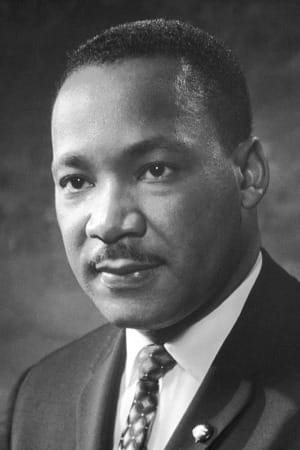
Book Highlight: "Martin Luther King Jr.: A Life" by Marshall Frady
Life and Leadership
Born on January 15, 1929, in Atlanta, Georgia, Dr. Martin Luther King Jr. became the leading voice of the American civil rights movement. A Baptist minister, King's advocacy for non-violent protest led to significant advancements in civil rights through peaceful demonstrations.
His leadership in the Montgomery Bus Boycott and the March on Washington, where he delivered the "I Have a Dream" speech, were instrumental in the passage of the Civil Rights Act of 1964 and the Voting Rights Act of 1965.
Key Leadership Qualities
- Non-violent Activism: King's commitment to peaceful protest set a powerful example.
- Oratory Excellence: His speeches galvanized public support and conveyed a compelling vision.
- Moral Authority: King's integrity and dedication earned widespread respect.
Notable Achievements
- Nobel Peace Prize (1964): Recognized for combating racial inequality through non-violence.
- Civil Rights Legislation: His efforts led to landmark laws ending segregation.
About the Book
"Martin Luther King Jr.: A Life" by Marshall Frady provides a concise yet profound biography of King, exploring his personal life, activism, and the broader civil rights movement.
Why It's Significant
- Insightful Analysis: Delves into King's motivations and challenges.
- Emotional Depth: Captures the human side of a monumental figure.
- Contextual Understanding: Places King's work within the larger struggle for equality.
Margaret Thatcher
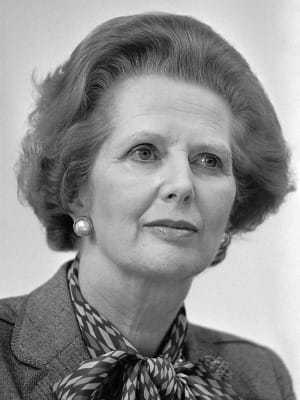
Book Highlight: "Margaret Thatcher: The Authorized Biography, Volume One: Not for Turning" by Charles Moore
Life and Leadership
Born on October 13, 1925, in Grantham, England, Margaret Hilda Thatcher became the United Kingdom's first female Prime Minister, serving from 1979 to 1990. Known as the "Iron Lady," her tenure was marked by significant economic and social changes.
Thatcher implemented policies emphasizing deregulation, privatization of state-owned companies, and reducing the power of trade unions. Her strong leadership style and conservative policies reshaped Britain's economy and international standing.
Key Leadership Qualities
- Determination: Thatcher's unwavering commitment to her principles drove her policies.
- Decisiveness: She was known for making bold decisions, even in the face of opposition.
- Influential Communication: Her speeches and public appearances solidified her authority.
Notable Achievements
- Economic Reforms: Transformed the British economy through free-market policies.
- Falklands War (1982): Led Britain to victory, boosting national morale.
About the Book
"Margaret Thatcher: The Authorized Biography, Volume One: Not for Turning" by Charles Moore offers an in-depth look at Thatcher's rise to power and her first term as Prime Minister, based on exclusive access to her papers and interviews.
Why It's Significant
- Authoritative Account: Provides unparalleled insight into her personal and political life.
- Balanced Perspective: Addresses both her successes and controversies.
- Historical Impact: Explores how her leadership influenced global politics.
John F. Kennedy
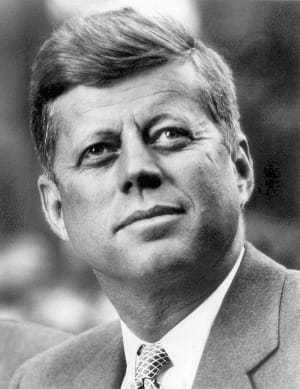
Book Highlight: "An Unfinished Life: John F. Kennedy, 1917–1963" by Robert Dallek
Life and Leadership
Born on May 29, 1917, in Brookline, Massachusetts, John Fitzgerald Kennedy served as the 35th President of the United States from 1961 until his assassination in 1963. Kennedy's charisma and vision for a "New Frontier" inspired a generation.
His presidency was marked by significant events such as the Cuban Missile Crisis, the establishment of the Peace Corps, and advances in the Civil Rights Movement. Kennedy advocated for space exploration, setting the goal of landing a man on the moon.
Key Leadership Qualities
- Charismatic Leadership: Kennedy's public speaking and charm resonated with the public.
- Crisis Management: Skillfully navigated the Cuban Missile Crisis, averting nuclear war.
- Progressive Vision: Promoted social reforms and scientific advancement.
Notable Achievements
- Space Race: Laid the groundwork for NASA's Apollo missions.
- Civil Rights Advocacy: Supported legislation to end racial discrimination.
About the Book
"An Unfinished Life" by Robert Dallek is a comprehensive biography that explores Kennedy's political career, personal life, health issues, and the complexities of his presidency.
Why It's Significant
- Revealing Details: Uncovers lesser-known aspects of Kennedy's life through extensive research.
- Balanced Analysis: Provides a critical yet fair assessment of his policies and decisions.
- Historical Context: Situates his presidency within the broader Cold War era.
Mother Teresa

Book Highlight: "Mother Teresa: Come Be My Light" edited by Brian Kolodiejchuk
Life and Leadership
Born on August 26, 1910, in Skopje, now North Macedonia, Mother Teresa (Anjezë Gonxhe Bojaxhiu) was a Catholic nun and missionary who devoted her life to serving the poorest of the poor in India.
In 1950, she founded the Missionaries of Charity in Calcutta (now Kolkata), which grew into a global organization. Mother Teresa's work earned her international acclaim, including the Nobel Peace Prize in 1979.
Key Leadership Qualities
- Compassion: Demonstrated unconditional love and care for the marginalized.
- Dedication: Lived among those she served, embracing a life of poverty.
- Spiritual Strength: Her faith guided her mission, despite personal spiritual struggles.
Notable Achievements
- Missionaries of Charity: Established a worldwide network aiding the sick and destitute.
- Humanitarian Recognition: Became a symbol of charitable work and selflessness.
About the Book
"Mother Teresa: Come Be My Light" is a collection of her private writings, revealing her inner spiritual journey, doubts, and unwavering commitment to her mission.
Why It's Significant
- Personal Insight: Offers a rare glimpse into her inner life and challenges.
- Inspirational: Highlights the depth of her faith and perseverance.
- Humanizes a Saint: Shows the complexities of her spiritual experiences.
Mikhail Gorbachev
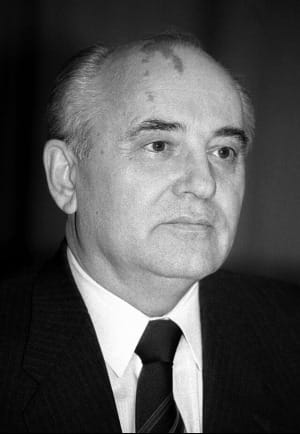
Book Highlight: "Gorbachev: His Life and Times" by William Taubman
Life and Leadership
Born on March 2, 1931, in Privolnoye, Russia, Mikhail Sergeyevich Gorbachev was the eighth and final leader of the Soviet Union. Serving as General Secretary from 1985 to 1991, he introduced policies of Perestroika (restructuring) and Glasnost (openness) to reform the stagnant Soviet system.
Gorbachev's efforts led to the end of the Cold War, the dissolution of the Soviet Union, and significant political and economic changes in Eastern Europe.
Key Leadership Qualities
- Visionary Reformer: Recognized the need for fundamental changes in Soviet society.
- Diplomatic Skill: Fostered better relations with Western leaders.
- Courage: Took bold steps despite resistance from hardliners.
Notable Achievements
- Nobel Peace Prize (1990): For his role in ending the Cold War.
- Arms Reduction: Negotiated treaties reducing nuclear arsenals.
About the Book
"Gorbachev: His Life and Times" by William Taubman is an authoritative biography that examines Gorbachev's life, policies, and the global impact of his leadership.
Why It's Significant
- In-depth Research: Based on interviews and extensive sources.
- Balanced View: Acknowledges his successes and the unintended consequences of his reforms.
- Global Perspective: Explores his influence on international relations.
Eleanor Roosevelt
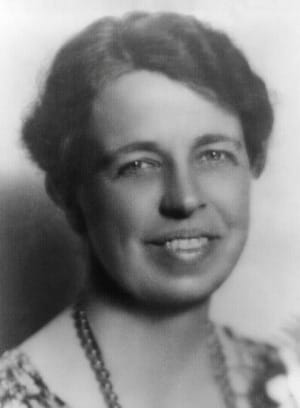
Book Highlight: "Eleanor Roosevelt, Volume One and Two" by Blanche Wiesen Cook
Life and Leadership
Born on October 11, 1884, in New York City, Anna Eleanor Roosevelt was the longest-serving First Lady of the United States during her husband Franklin D. Roosevelt's four terms. A formidable political figure in her own right, she advocated for civil rights, women's rights, and humanitarian causes.
After FDR's death, Eleanor served as a delegate to the United Nations General Assembly and chaired the committee that drafted the Universal Declaration of Human Rights.
Key Leadership Qualities
- Advocacy: Used her platform to champion marginalized groups.
- Diplomacy: Played a vital role in international human rights efforts.
- Independence: Redefined the role of First Lady through active engagement in politics.
Notable Achievements
- Universal Declaration of Human Rights (1948): Instrumental in its creation.
- Civil Rights Support: Worked tirelessly to combat racial discrimination.
About the Book
"Eleanor Roosevelt" by Blanche Wiesen Cook is a comprehensive two-volume biography that covers her early life, political activities, and lasting legacy.
Why It's Significant
- Thorough Biography: Provides a detailed account of her personal and public life.
- Inspirational: Highlights her resilience and commitment to social justice.
- Educational: Offers insights into American politics and international relations.
Also read about:

Conclusion
The leaders profiled in this guide represent a diverse array of backgrounds, ideologies, and accomplishments. Their common thread lies in their profound impact on the 20th century and their embodiment of leadership qualities such as vision, courage, empathy, and determination.
The books highlighted offer deep dives into their lives, providing not only historical accounts but also lessons in leadership that remain relevant today. By studying these figures, readers can gain valuable insights into overcoming challenges, effecting change, and inspiring others.
Whether through Gandhi's non-violent resistance, Churchill's resolute wartime leadership, or Eleanor Roosevelt's unwavering advocacy for human rights, these leaders continue to teach us about the power of individual action in shaping history.
Further Reading
- "The Autobiography of Malcolm X" by Malcolm X and Alex Haley
- "The Diaries of Nikita Khrushchev" edited by Sergei Khrushchev
- "Lee Kuan Yew: The Grand Master's Insights on China, the United States, and the World" by Graham Allison
- "Mandela's Way: Lessons on Life, Love, and Courage" by Richard Stengel
- "Leading Change" by John P. Kotter




